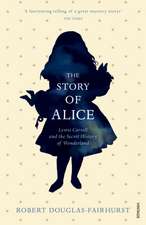Home
Autor Toni Morrisonen Limba Engleză Paperback – 8 ian 2013
| Toate formatele și edițiile | Preț | Express |
|---|---|---|
| Paperback (2) | 51.60 lei 23-34 zile | +16.45 lei 7-13 zile |
| Random House – 8 ian 2013 | 51.60 lei 23-34 zile | +16.45 lei 7-13 zile |
| VINTAGE BOOKS – 7 ian 2013 | 71.25 lei 3-5 săpt. | +6.71 lei 7-13 zile |
Preț: 51.60 lei
Preț vechi: 62.53 lei
-17% Nou
9.87€ • 10.38$ • 8.16£
Carte disponibilă
Livrare economică 28 martie-08 aprilie
Livrare express 12-18 martie pentru 26.44 lei
Specificații
ISBN-10: 0099555948
Pagini: 145
Dimensiuni: 130 x 198 x 20 mm
Greutate: 0.13 kg
Editura: Random House
Colecția Vintage Books
Notă biografică
Toni Morrison was awarded the Nobel Prize for Literature in 1993. She is the author of many novels, including The Bluest Eye, Beloved (made into a major film), Paradise and, most recently, A Mercy. She has also received the National Book Critics Circle Award and a Pulitzer Prize for her fiction.
Recenzii
Descriere
A self-loathing veteran of the Korean War, Frank Money finds himself back in racist America with more than just physical scars. Suffering from crippling apathy, he is spurred into action by the need to rescue his sister, and discovers a profound courage he thought was lost forever. This is a deeply moving novel about an apparently defeated man finding his manhood and, finally, his home.
Extras
They rose up like men. We saw them. Like men they stood.
We shouldn’t have been anywhere near that place. Like most farmland outside Lotus, Georgia, this here one had plenty scary warning signs. The threats hung from wire mesh fences with wooden stakes every fifty or so feet. But when we saw a crawl space that some animal had dug—a coyote maybe, or a coon dog—we couldn’t resist. Just kids we were. The grass was shoulder high for her and waist high for me so, looking out for snakes, we crawled through it on our bellies. The reward was worth the harm grass juice and clouds of gnats did to our eyes, because there right in front of us, about fifty yards off, they stood like men. Their raised hooves crashing and striking, their manes tossing back from wild white eyes. They bit each other like dogs but when they stood, reared up on their hind legs, their forelegs around the withers of the other, we held our breath in wonder. One was rust-colored, the other deep black, both sunny with sweat. The neighs were not as frightening as the silence following a kick of hind legs into the lifted lips of the opponent. Nearby, colts and mares, indifferent, nibbled grass or looked away. Then it stopped. The rust-colored one dropped his head and pawed the ground while the winner loped off in an arc, nudging the mares before him.
As we elbowed back through the grass looking for the dug-out place, avoiding the line of parked trucks beyond, we lost our way. Although it took forever to re-sight the fence, neither of us panicked until we heard voices, urgent but low. I grabbed her arm and put a finger to my lips. Never lifting our heads, just peeping through the grass, we saw them pull a body from a wheelbarrow and throw it into a hole already waiting. One foot stuck up over the edge and quivered, as though it could get out, as though with a little effort it could break through the dirt being shoveled in. We could not see the faces of the men doing the burying, only their trousers; but we saw the edge of a spade drive the jerking foot down to join the rest of itself. When she saw that black foot with its creamy pink and mud-streaked sole being whacked into the grave, her whole body began to shake. I hugged her shoulders tight and tried to pull her trembling into my own bones because, as a brother four years older, I thought I could handle it. The men were long gone and the moon was a cantaloupe by the time we felt safe enough to disturb even one blade of grass and move on our stomachs, searching for the scooped-out part under the fence. When we got home we expected to be whipped or at least scolded for staying out so late, but the grown-ups did not notice us. Some disturbance had their attention.
Since you’re set on telling my story, whatever you think and whatever you write down, know this: I really forgot about the burial. I only remembered the horses. They were so beautiful. So brutal. And they stood like men.












